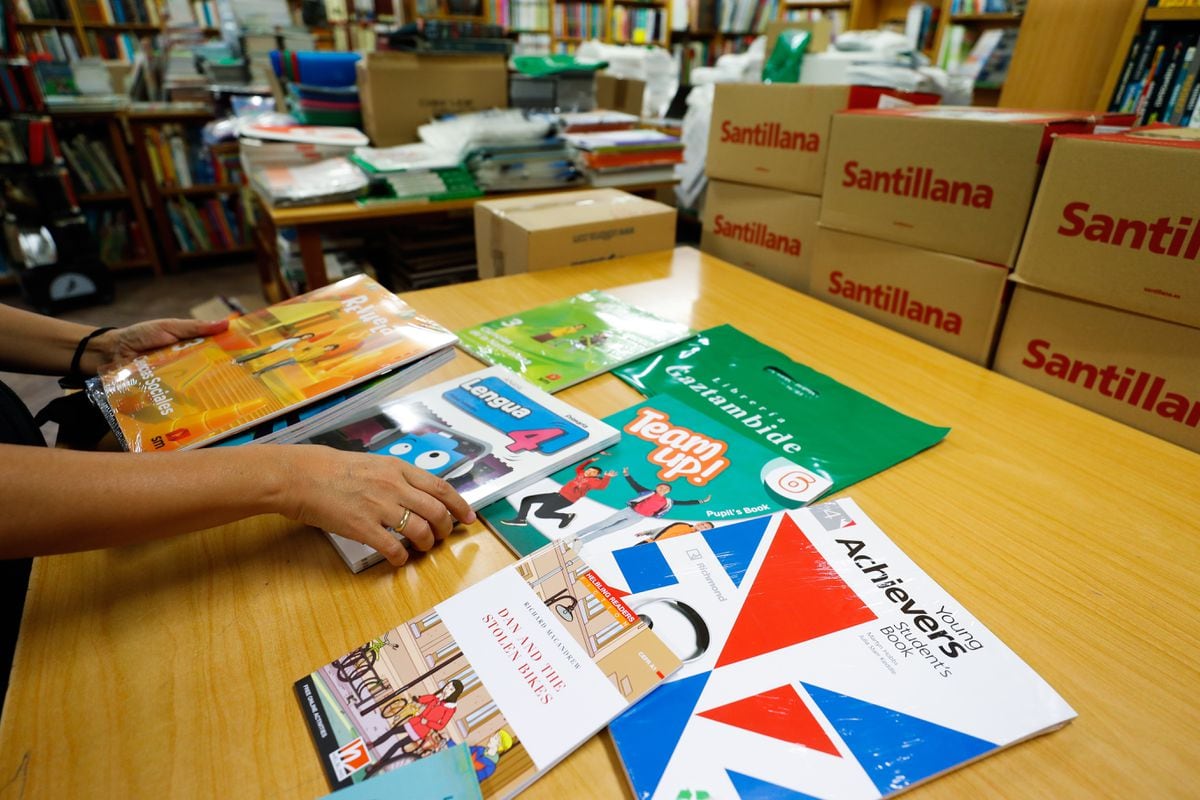The Community of Madrid will increase the budget of the Accede program by 25.2% for the new school year – which starts this Friday for teachers and management teams – the free textbook loan system in public and subsidized centers in the region. The investment increases by 12.6 million euros an item that will reach 62.6 million and, with the increase, the Ministry of Education intends to benefit 40,000 new students in Primary, Compulsory Secondary Education, Special Education and Basic Vocational Training.
Until now, 440,000 Madrid students have participated in the loan and the Community expects to reach 480,000 this academic year. According to the ministry, the Access system will mean savings for families of up to 300 euros in the cost of textbooks per child, although participation in the Access program is voluntary and must be expressly requested by the families themselves. For this, it is mandatory to deliver the school manuals from the previous year in good condition, with the aim of creating a volume deposit in each school and institute in the region.
The books are renewed every four school years, with the exception of the first and second grade books, and those for Special Education, which are changed annually. They are the educational centers, through the so-called management commission ―director, secretary, coordinator of the center, representatives of the teaching staff, the Administration and the AMPA―, those who are in charge of collecting the books, preparing and distributing them. Also the purchase of new copies when required.
Isabel Galvín, general secretary of the CCOO Teaching Federation in Madrid, points out that more investment is welcome, but that Accede “fails” in its management. “The centers take care of everything and the counseling derives in them some tasks for which it has no resources. It’s a lot of bureaucracy for them and for the small bookstores. In practice, the ones who can carry it out more easily are the large stores, ”she comments by phone.
In addition, adds the union representative, it is common for copies to arrive late at schools and institutes and that neighborhood bookstores cannot compete with the prices offered by large distribution chains. “They complain that this model does not benefit the small one, because the centers must opt for the cheapest budget and the lowest prices can be offered by larger bookstores”, explains Galvín. He also believes that the program “reaches few people”: “There are around 1.4 million students and [480.000 beneficiados] It’s not even half.” The Ministry, on the other hand, argues that it makes it easier for small and medium-sized bookstores to opt for a public contract for the purchase of books, by reducing the economic solvency requirement from 23,000 euros to a total of 10,000 euros.
Along with the increase in investment in loans, the Community of Madrid will also increase the budget for school canteen scholarships by 21.3%, reaching 39.2 million euros and benefiting 100,000 students, 13,000 more than the previous year. , something that the Government Isabel Díaz Ayuso already announced in a statement in June. In the 2022-2023 academic year, the vast majority of the grants that were granted represent only a reduced price, not the entire cost: 979 euros per course (5.50 euros for 178 school days). The regional Executive contemplates an economic aid of almost half (45.5%), about 445 euros per course, for the rest who earn more than 3,000 per capita and up to the top, which is 4,260 euros. This means that whoever is in this income range will have to pay 60 euros per month per child, a cost of 3 euros per day.
What affects the most is what happens closer. To not miss anything, subscribe.
subscribe
Dance lessons
Looking ahead to the course that begins, the council also announces that 13,000 primary school students from 50 public and subsidized schools will begin to receive dance classes during the first quarter of the academic year. The measure – for now a pilot test – will also be implemented in Special Education centers. Students will receive classes throughout the course and will be taught by dance graduates, who will act as teachers’ assistants.
In the next few days, the Ministry of Education will publish a call for grants to implement the program to which qualified dancers will be able to apply. If they are selected, they will have to complete a training course before starting the sessions with the students. Specifically, they will teach between 6 and 16 hours of class per week, depending on how many primary lines there are per school, and the economic benefit will range between 342 and 913 euros, depending on the class hours.
subscribe here to our daily newsletter about Madrid.
2023-08-30 08:05:19
#Community #Madrid #increases #budget #free #loan #textbooks


